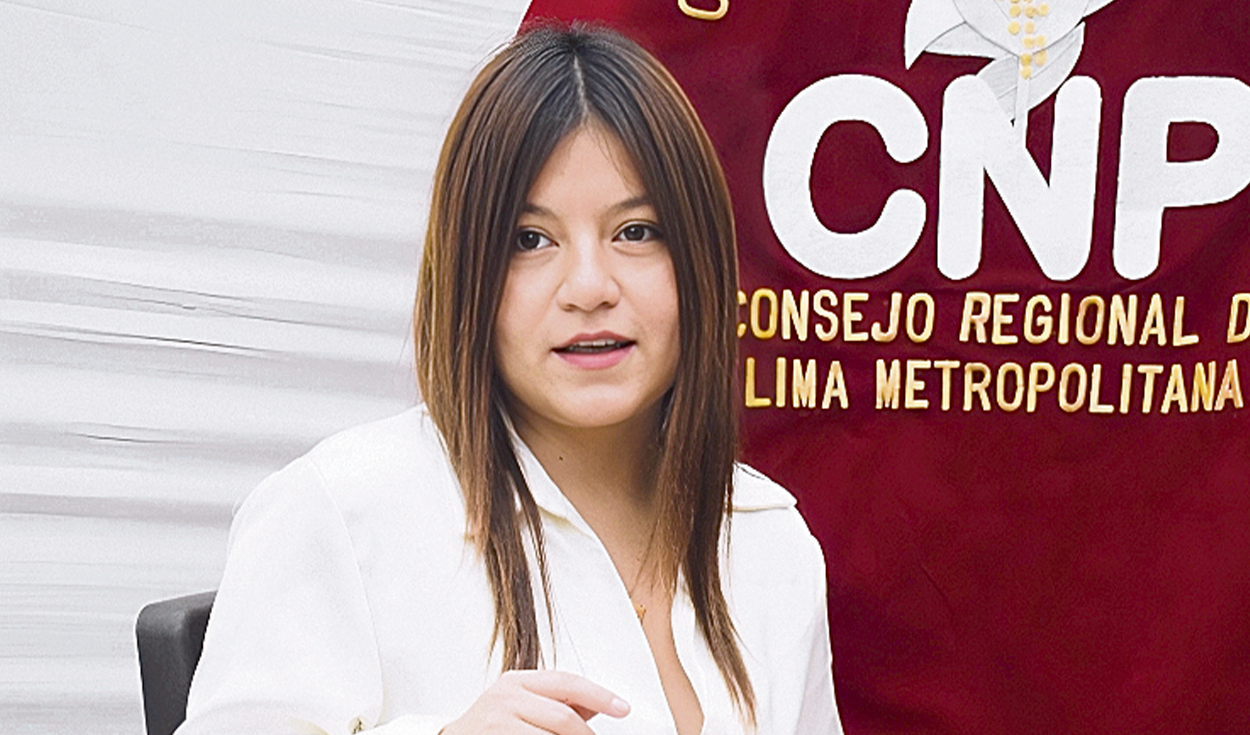
For Jessica Huamán, dean of the College of Nutritionists of Lima, the reduction in the purchase of natural milk from national producers reveals systemic problems of the State and impacts the food security of the population.
—The Midis has proposed changing the milk in Qali Warma breakfasts for a drinkable one. Is it comparable to milk?
—A drink made with cereals and water is not going to be compared with the nutritional level of cow’s milk, because it has proteins of high biological value and calcium of animal origin that are absorbed more effectively than that of plant origin. However, I understand that Qali Warma is going to include high-value proteins, such as eggs, but it would be ideal if they could explain the schedule of what they are going to give daily, because I don’t know if they will give the egg daily. It should be made clear in the media what the benefit that will be given in the programs will be. A differentiation is also being made by region, because that is also important to consider, the natural approach for minors.
—So, milk is replaceable?
—Yes, but milk is more practical when it comes to providing protein of high biological value to the child. Let’s see, Qali Warma’s breakfast is made up of a drinkable and a solid, so the drinkable as such can be consumed during the day because it has a transportable bottle. That is different with solid, because it is generally difficult for them to continue using it. Milk, being a drinkable, can be transported; Imagine if it were a hard-boiled egg, it would be difficult.
On the other hand, work is carried out with local producers. Something that has been put on the table and made visible are the mechanisms through which Qali Warma accesses the food of its beneficiaries. These are difficult for local producers to access and the authorities are urged to make it easier for local producers to not only give milk, but yogurt, and to reach directly.
—So, it’s not just nutritional problems.
—In the case of milk, dairy of animal origin can be easily replaced at the protein level, there is no major problem. In addition to milk, it has been said that it can be cheese or yogurt. The dialogue is not closed, what is being debated is what happens with fresh milk, because, technically, it could be replaced with other foods of animal origin and prevent the malnutrition present in 11.7% of children under 5 years old. What is surprising is why the five days that milk was provided has been reduced to one day. It is something that has also been mentioned in the dialogue with Agalep (dairy producers’ union) that we have had with the Colegio de Lima. That the reduction be gradual, that it is proposed that the change towards a different breakfast could initially be for three days, but not one, that would affect more than the nutritional part and the local producers who have to do with food security.
-What is food security?
—When we talk about nutrition, we not only talk about the nutritional status of the population, but also about how much the model becomes a sustainable food system in the country, and within it are the local producers who have a large percentage of poverty because they cannot access with their food directly as stated by law. The mechanism by which Qali Warma acquires its food is already a barrier for local producers, but, independently of them, there are other programs that could take advantage of law 31071, which tells us that 30% of the food that comes from the State They have to come from locals. Not only programs, but attention to common pots. This particular problem of Qali Warma makes visible how the State, unfortunately, is not acquiring even 30% of its local producers.
—Midagri raised the standards for the evaporated milk that the State buys from Gloria, and Midis then changes the milk for a drinkable product. Isn’t erasing with one hand what you do with the other?
—Yes, in this case it has also been put on the table to not mediate the provision of fresh food through the food industry, and rather to somehow guarantee that it is the ranchers who guarantee this food. Undoubtedly, due to the large scale they have to provide, the change must be gradual, but the central government is urged to stop depending on the industry. Therefore, it is important that it can make the aspects linked to the provision of food more flexible and that it can in some way facilitate from other instances, such as Midagri, the safety of the food that premises can generate to meet standards in social programs.
—Food should not continue to be intermediated with large industry, because there are local producers who could promote it in the future, not only at the dairy level, but also in fruits, vegetables, poultry, etc. This continues to happen because the standards for purchasing food are too high for local producers.
—Does Gloria have an agreement or guarantee agreement with you?
—The Lima Council does not sign any type of agreement or guarantees. We, as a council, have declared ourselves free of conflicts of interest to avoid these situations. We do not even participate in presentations or activities of large industry nor do we accept donations or ultra-processed products to provide to members. We have also put that on the table to prevent the institutional image from being undermined.
—Well, I wish the national council thought like that.
-Yeah.
Source: Larepublica
Alia is a professional author and journalist, working at 247 news agency. She writes on various topics from economy news to general interest pieces, providing readers with relevant and informative content. With years of experience, she brings a unique perspective and in-depth analysis to her work.












